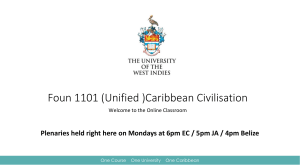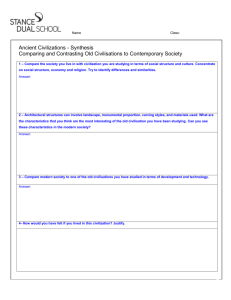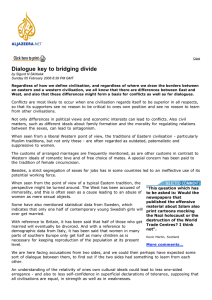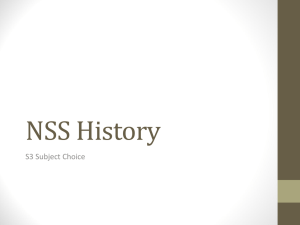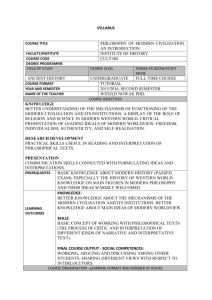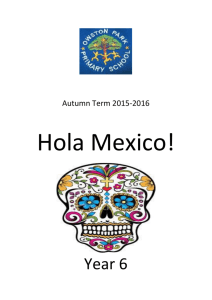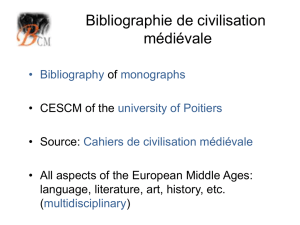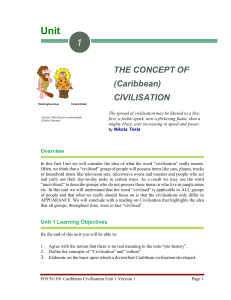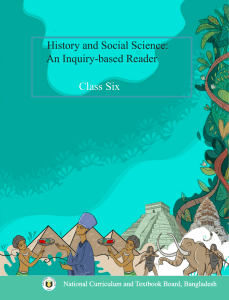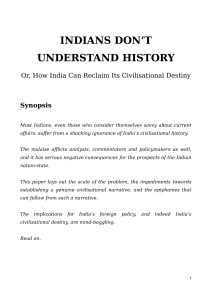Contents
advertisement
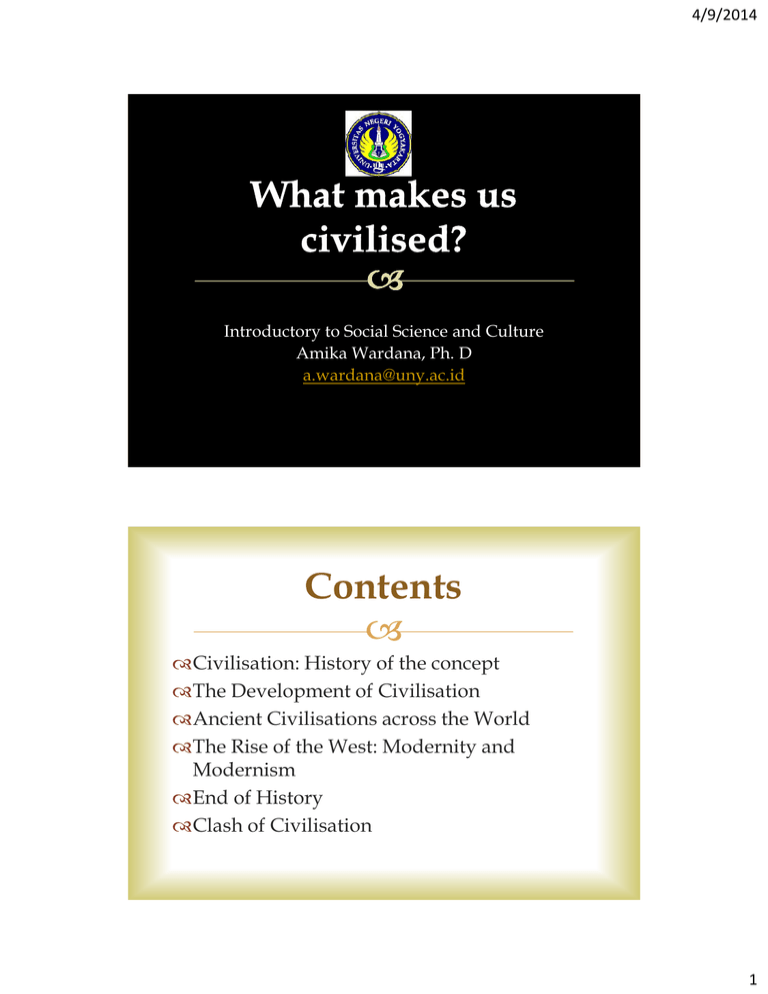
4/9/2014 Introductory to Social Science and Culture Amika Wardana, Ph. D a.wardana@uny.ac.id Contents Civilisation: History of the concept The Development of Civilisation Ancient Civilisations across the World The Rise of the West: Modernity and Modernism End of History Clash of Civilisation 1 4/9/2014 Civilisation: History of the Concept Latin civilis, meaning civil, related to the Latin civis, meaning citizen, and civitas, meaning city or city-state Civilisation refers to: a ceremonial centre (a formal gathering place for social and cultural activities); a system of writing; and a city Contrasted to hunter-gatherers, nomadic pastoralists and tribal village Civilisation … (Cont) Characterised by a ruling elite, and subordinate urban and rural populations, which, by the division of labour, engage in intensive agriculture, mining, small-scale manufacture and trade Distinguished by their means of subsistence, types of livelihood, settlement patterns, forms of government, social stratification, economic systems, literacy, and other cultural traits 2 4/9/2014 Civilisation … (Cont) refer to the culture of a complex society. Every society, civilization or not, has a specific set of ideas and customs, and a certain set of manufactures and arts that make it unique. Civilizations tend to develop intricate cultures, including literature, professional art, architecture, organized religion, and complex customs associated with the elite The Development of Civilisation A polity has reached are based on comparisons of the relative importance of agricultural as opposed to trade or manufacturing capacities, the territorial extensions of its power, the complexity of its division of labor, and the carrying capacity of its urban centres. Secondary elements include a developed transportation system, writing, standardized measurement, currency, contractual and tort-based legal systems, art, architecture, mathematics, scientific understanding, metallurgy, political structures, and organized religion 3 4/9/2014 The development …(Cont) People of the such society: “civilised” means of having achieved the high level of humanity Contrasted to: barbarians, savages, and primitives; indigenous people or tribal societies (Kelompok Adat or Orang Asli) Binary Opposition: Superiority vs Inferiority between human beings Ancient Civilisations across the World The Indus Valley Civilization: Mohenjo-Daro and Harappa (circa 3300–1300 BCE; mature period 2600– 1900 BCE) in the Northwest India and Eastern Pakistan Mesopotamia: In the area of Turkey, Syria and Iraq. Africa South America China Southeast Asia? (or just a crossroad) 4 4/9/2014 The Rise of the West: Modernity A post-traditional, post-medieval historical period: one marked by the move from feudalism (or agrarianism toward: Capitalism; Industrialisation; Secularisation; Rationalisation; Nation-States. Modernity defined… (Cont) increased movement of goods, capital, people, and information among formerly discrete populations, and consequent influence beyond the local area increased formal social organization of mobile populaces, development of "circuits" on which they and their influence travel, and societal standardization conducive to socio-economic mobility increased specialization of the segments of society, i.e., division of labor, and area inter-dependence 5 4/9/2014 Modernisation … (cont) A model of an evolutionary transition from a 'premodern' or 'traditional' to a 'modern' society. Industrialisation; urbanisation, rationalisation; individualisation; secularisation. (A Myth of) Modern Society: its people are wealthier and more powerful, and freer, with a higher standard of living Should non-Westerners follow the same path? End of History Western Domination up to 20th century: Colonisation and Imperialism of Asia, Africa and Latin America The Cold War up to 1990s: the Capitalist West vs the Socialist Others Fukuyama (1989): What we may be witnessing is not just the end of the Cold War, or the passing of a particular period of post-war history, but the end of history as such: that is, the end point of mankind's ideological evolution and the universalization of Western liberal democracy as the final form of human government 6 4/9/2014 End of History … (cont) Democracy; Liberalism; Market Economi; Free Trade The Socio-economic and politics of the global are highly connected; and ruled by the democraticcum-liberal and market-driven principles. Borders between nation-states are blurring or even disappearing. The World is becoming a global village (see the next meeting on Globalisation). Clash of Civilisation Huntington’s (1993) thesis: Clash of Civilisation: The West vs Islamism; The West vs Confucianism; The West vs Hinduism; and etc. The flux of Muslim immigrants in Western countries The rise of Islamic Jihad (terrorism) and the Global War on Terror For Muslims: Ghazwul Firm (Conflicts of Ideology) from the West: Liberalism 7 4/9/2014 Clash of Civilisation … (cont) The Economic resurgence of BRICS: Brazil, Russia, India, China and South Africa Between Democracy and Authoritarianism Democracy: Brazil, India, South Africa Authoritarian: Russia and China Where the Muslim countries? 8
